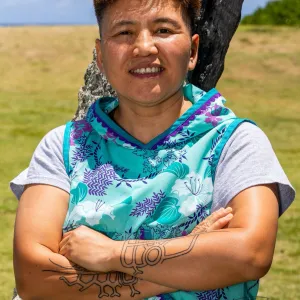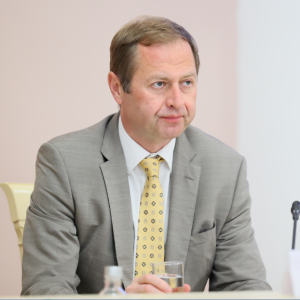The Ongoing Struggle for Decolonization and Recognition of the Yupik People

Luda Kinok, an Indigenous rights advocate and member of the Yupik people, reflects on the severe impact of colonization on Indigenous populations worldwide. The experiences of her community, as well as those of other Indigenous groups, are often shrouded in silence, causing immense pain and suffering that goes largely unrecognized.
In recent discussions, particularly those concerning the Indigenous peoples of Russia, the topic of decolonization has taken centre stage. This debate, fuelled by a new wave of ethnic activists who have fled Russia due to political persecution, highlights intricate historical injustices. Initial thoughts on decolonization often revolve around the decolonization movements in Africa and Asia during the latter half of the 20th century, where once-colonized nations gained their independence from European powers.
However, the situation becomes more complex concerning small nations or Indigenous groups who find themselves within newly independent states. For instance, have the Indigenous people of Greenland truly achieved decolonization, or do remnants of colonial governance still linger under Danish oversight? Despite Greenland’s extensive local governance, core matters of foreign policy, defense, and currency control remain with Denmark.
The Sami people, residing in northern Europe, provide another lens through which to examine decolonization. Though they exhibit humor about their situation—joking that they could easily form their own state but would rather engage in traditional activities like fishing and reindeer herding—the question lingers: have they reached a sufficient level of decolonization?
Sámi land, or Sápmi, faces ongoing threats from larger state interests and environmental concerns. The task ahead involves recognizing and grappling with the implications of colonialism—a conversation still deemed taboo in Russia.
During a recent session of the UN Permanent Forum on Indigenous Issues, a report on Indigenous self-determination prompted an official rebuke from the Russian Foreign Ministry. Sergey Chumarev’s comments displayed a defensive posture regarding Indigenous rights, especially regarding the Inuit in regions like Chukotka, where there are accusations of colonial domination.

Chumarev’s claim that the Indigenous peoples of Chukotka have achieved autonomy is met with skepticism. The underlying dissatisfaction with the representation of Chukotka as a colony reveals an unwillingness to confront the historical facts of colonialism, undermining the progress of Indigenous rights discussions.
Enter Luda Kinok, a Yupik representative who has lived through the trials of her community. Luda’s upbringing in the village of Sireniki and her journey to becoming a pastor in Chukotka highlight the deep cultural disruptions caused by colonization and Soviet policies. Her struggle serves as a personal account of the broader Indigenous experience afflicted by ideological impositions and physical displacements.
As the Yupik face the legacy of colonization, the memories of their past continue to inform their identity. Kinok poignantly notes how the Soviet narrative erased Indigenous history, relegating it to folklore and myth while asserting the supposed superiority of colonial societies.
The Soviet regime’s policies against Indigenous peoples resulted in forced relocations, undermining their social structures and traditional lifestyles. Kinok recounts the traumatic experiences of her people as they were compelled to abandon their homes and communities, leading to a generational disconnect with their cultural roots.
Today, the Yupik community experiences the consequences of historical injustices amid ongoing existential threats, most notably the war in Ukraine. Kinok’s observations on the disproportionate mobilization of Indigenous men from her community underscore the dire implications of the ongoing conflict, which eerily echoes historic patterns of oppression.



Furthermore, Kinok critiques the Russian government’s current legislation, which seems to prioritize the protection of flora and fauna while leaving Indigenous peoples marginalized and voiceless. The disparity between the attention given to plant life versus the survival of the Yupik people raises profound ethical questions about contemporary priorities in Russia.
The portrayal of the Yupik as a near-extinct population in the face of overwhelming state disregard for their identity and rights emphasizes a broader failure to protect Indigenous cultures and lifeways. As Kinok asserts, the global community needs to shift their focus from merely commemorating historical injustices to actively addressing and safeguarding Indigenous rights and cultures today.
Ultimately, Luda Kinok’s calls for recognizing the colonial past and its lasting repercussions serve as a clarion call for justice. Celebrating the resilience and wisdom of her ancestors, she urges action that not only acknowledges the reality of colonialism but also strives to rectify its continuing impact on the Yupik and other Indigenous peoples in Russia.